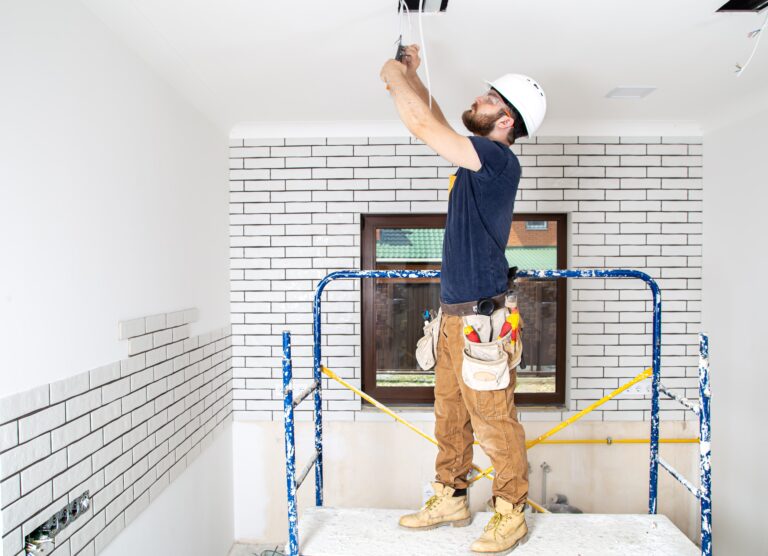When it comes to electrical work in your home, the expertise you require can vary greatly depending on whether you’re building anew or remodeling an existing structure. While both new construction electricians and remodeling electricians are skilled tradespeople, their roles, tools, and approaches to projects can differ significantly. This blog post will explore these differences to help you hire the right professional for your project.
Defining the Roles
New Construction Electricians: Pioneers of Wiring

New construction electricians specialize in the initial installation of electrical systems in new buildings. These professionals work closely with builders and architects to design and implement electrical layouts from scratch.
Remodeling Electricians: Experts in Adaptation

Remodeling electricians, on the other hand, are adept at modifying and upgrading existing electrical systems to meet modern standards and the specific needs of a renovation project.
Key Differences
Working Environments
New construction electricians often work in empty structures, laying out electrical systems before walls are closed and finishes are applied. This can be both a challenge and a benefit, as they must visualize the final build but also have the freedom to work without obstacles.
Remodeling electricians typically operate in finished environments, requiring them to navigate around existing structures and systems with minimal disruption to the home.
Tools and Techniques
Due to the nature of their work environments, new construction electricians might use more heavy-duty equipment and technology to lay the groundwork for electrical systems. Remodeling electricians are more likely to use tools and techniques suited for precision and retrofitting in tighter spaces.
Considerations for Hiring
Analyzing Your Project Needs
Understanding the scope of your project is critical when deciding between a new construction electrician and a remodeling electrician. Consider factors such as the age of your home, the extent of the electrical work needed, and whether the project involves new additions or altering existing spaces.
Certification and Experience
Regardless of your choice, ensure that the electrician you hire has the necessary certifications, experience, and insurance to safely and effectively complete your project.
Importance of Specialization
Specialization matters. Hiring an electrician with the right background ensures that they are familiar with the specific challenges and regulations associated with your type of project. This can greatly affect the quality, safety, and timeline of the job.
Conclusion
While the basic principles of electrical work remain consistent, the application of those principles can vary dramatically between new construction and remodeling. By understanding these differences, you can make an informed decision that ensures the safety, efficiency, and success of your project.

